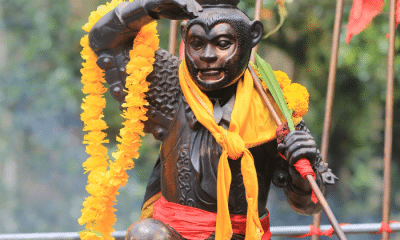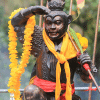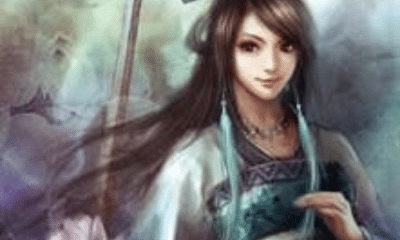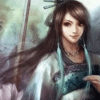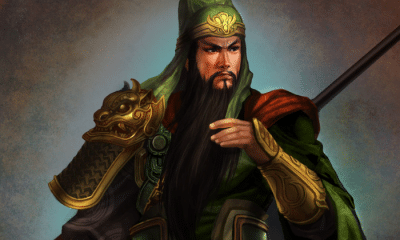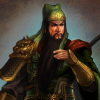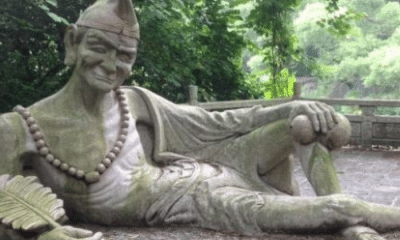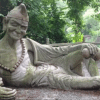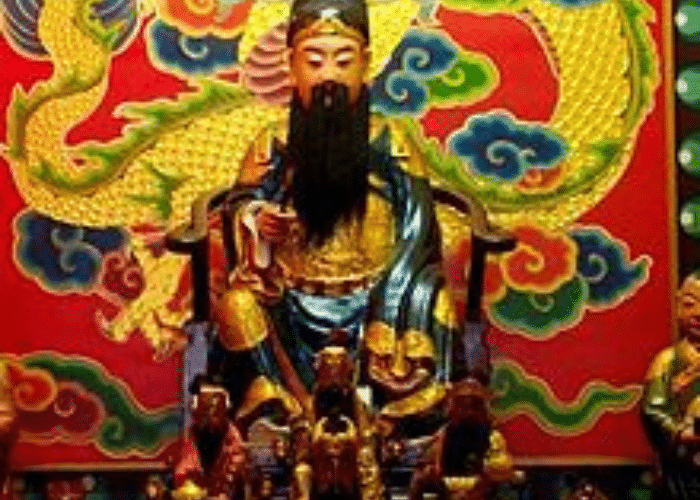
Chinese
Wenchang Wang: The Chinese God of Culture
Wenchang Wang: The Chinese God of Culture
If you need to study for a test, you might want to pray to Wenchang Wang. The Taoist god of literature and culture is a favorite of students.
The Taoist god Wenchang Wang is associated with literature and culture. Believed to have been reincarnated as a scholar of the Imperial government many times, he is now a patron of students and academics.
Wenchang Wang is also a kind and compassionate god. He welcomes the poor as well as the wealthy and will help all people who need his favor.
His origins, however, were not among the scholarly bureaucrats of the Imperial Court. According to legend, Wenchang Wang was born into poverty and became prominent through military heroism, not his studies.
How a heroic man became a noted scholar depends on the source. Legend says that the Jade Emperor recognized the god’s wisdom, but modern scholars offer another explanation for how Wenchang Wang because the god of culture.
The Many Incarnations of Wenchang Wang
Most gods of Taoism began their lives as humans. This was the case with Wenchang Wang, who was born by the name Zhang Yazi.
According to legend, Zhang Yazi’s mother was malnourished and horribly ill when he was an infant. Although she was weak, she continued to breastfeed him in the hopes that he would survive and grow strong.
One night, the child cut off a piece of his own thigh as his mother slept. He fed it to her and her illness was instantly cured.
He grew up in Zitong County in Sichuan Province. As his mother hoped, he grew into a strong man.
Zhang Yazi served in the military and was eventually at the side of Emperor Fu Jian. In 374 AD he died a heroic and noble death protecting the Emperor during a rebellion.
Because he was a virtuous man and died in such a noble way, Wenchang Wang was given the ability to be reincarnated.
Some accounts claim that Wen, as he is sometimes called, was given seventeen reincarnations over a 3,000 year period. He returned to earth many times to help people in times of need.
He was known by various titles through the years until he was formally canonized as a god in 1314. Emperor Yen Yu, a Mongol ruler, named his as Supporter of the Yuan Dynasty, Diffuser of Renovating Influences, Ssu-lu of Wenchang, God and Lord
In one story, Wenchang Wang reappeared 626 years after his death in the city of Chengdu.
In the year 1000, imperial forces battled to suppress a rebellion in Sichuan. Much of the fighting centered around Chengdu, which is still the province’s capital today.
During a battle against the rebels, an imperial soldier claimed to have been Wenchang Wang as the “Spirit of Zitong.” Wen revealed to him the exact day that the city of Chengdu would be reclaimed by the emperor’s army.
When Chengdu fell on the day that the Spirit of Zitong had prophesied, the general leading the imperial army made the restoration of his temple there the first act of the reestablished governmental authority.
In some legends, however, Wenchang Wan returned to the land of the living far more than seventeen times.
The Jade Emperor was so impressed with Wenchang Wang’s wisdom and nobility that he sent him back to earth seventy-three times. In each of these incarnations, he served as a shidafu, or scholar bureaucrat, in the Emperor’s court.
Each time he served in government, Wen was known for being just and fair. He never participated in government corruption or treated people harshly.
Wen had a reputation for being compassionate, helping those in need, and comforting the lonely and distressed. Whenever he served in the imperial court he made it more stable and promoted peace.
Wenchang Wang’s role as an exceptional scholar and promoter of stability form the basis for his worship.
His name translates as “King of Flourishing Culture” and he is the god of literature and scholarship.
Although he was often part of the elite society of the Imperial Court, Wen always showed compassion and kindness to people of all classes. Because of this, he could be venerated by both the rich and poor.
Because of this, his temples flourished. In Sichuan, he was said to rival Confucius in influence and wisdom.
That wisdom is something his worshippers still hope to gain from him. As a god of scholarship, Wenchang Wan is still prayed to by students and scholars in the hopes that he will bring them academic success.
My Modern Interpretation
Some modern scholars question parts of Wenchang Wang’s story. While it is not unusual for Taoist deities to have regional variations, part of the popular legend seems out of place for his character.
In his human life, Wenchang Wang is usually identified as Zhang Yazi. Zhang’s story, however, does not seem to fit with Wen’s position as a scholar.
Zhang Yazi was a military figure whose story centers on heroism, filial devotion, and honor. There is no mention in his tale of the wisdom or literature that made Wenchang Wang the King of Culture.
Some theorize that this incongruity is the result of the blending of two different deities. Their theory is based in large part on Wen’s place in the stars.
Taoist gods are often identified with part of the heavens as well as their domain on earth. Wenchang Wang is the god of a six-star constellation near the Big Dipper.
This placed him in close celestial proximity to another literary god, Kui Xing. His four stars are part of the Big Dipper.
Kui Xing is closely identified with writing and literature. He was said to have a bent back that made him resemble a written character himself.
According to a popular legend, when he was alive Kui Xing was a talented scholar who excelled in his studies. After passing his exams, however, the emperor passed him over for an official position because of his physical deformities.
Kui Xing is often associated with Wenchang Wang and shown near him, but he is not as popular as the cultural god. In Imperial China, he was most often prayed to by scholars hoping to do well on their exams.
Some scholars believe that Wen was once a god of a very different type. He was born as Zhang Yazi and became a god of nobility or military heroism.
Because of their proximity in the sky, the gods began to be conflated. This may have occurred when new constellations were mapped and Kui Xing’s stars were incorporated into the Big Dipper.
Wenchang Wang, whose name appears to be a relatively recent aspect of his character, took on the attributes of a scholar even though his origin was as a fighter. Kui Xing largely faded from worship while the more popular Spirit of Zitong became a god of culture.
In Summary
Wenchang Wang is the Taoist god of culture, scholarship, and literature. Today, students pray to him for success in their exams.
In the past, prospective members of the Imperial Court would have done the same. Wenchang Wang was said to be reincarnated several times as one of the court’s scholarly bureaucrats.
In this position, he was a fair and forgiving leader who showed kindness and mercy to even the most destitute people. He made the court more stable and worked against government corruption.
His origin story, however, does not seem to match this characterization. He was supposedly born Zhang Yazi and distinguished himself by heroically dying in defense of the Emperor as a soldier, not a scholar.
Modern scholars believe this is because Wen did not begin as a scholarly god. Instead, he largely absorbed another god of academics whose constellation was near his own.
As Wenchang Wang became more popular, due in part to his acceptance of all social classes, he took on the attributes and some of the stories of the less prominent scholar god. The result was a literary deity whose military heroism only added to his many virtues.


